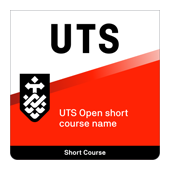The first 5-day block (stage 2) sees participants re-conceptualise their existing understanding of those skills, tools, and concepts learnt during green belt, in the context of ‘whole-of-organisation’ improvement strategy and the different role played by black belt project managers as facilitators and leaders within their organisations. This involves exploring more advanced concepts and tools that arise during the measurement phase.
The second 5-day block (stage 3) explores more advanced concepts, tools, and skills related to the analysis, implementation and control phases. This involves exploring techniques for creative solution development, statistical process control, experiment design and change management for more complex solutions.
The following content will be covered during the course over the two, five-day blocks:
Block 1 (5 days duration)
1. Grounding the black belt program
- Introduction to black belt program & course expectations
- Lean six sigma history, context & basic concepts
- Lean six sigma strategic view
- Reframing organisational improvement - lean six sigma & organisational excellence
- Lean six sigma roles & development roadmap
- Emergence of business excellence
- Strategic analyses
- Complexity of black belt projects
- Black belt tools.
2. Developing black belt facilitation skills
- Lean six sigma & organisational improvement
- Black belt role
- Review of personality in facilitation
- Teamwork -team chemistry & performance model
- Self-assessment of black belt team leader capabilities
- Team facilitation & communication - skills, models & tips
- Decision-making
- Consensus building worksheet
- Decision grids
- Power & identity
- Facilitating conflict.
3. Issues in starting a project
- Review of the define phase, engagement & communication
- Audience
- Key expectations & concerns
- Communication actions
- Review of improvement plan
- Modelling your project
- Coaching hints on improvement plan
- Review measuring financial benefits
- Review PDSA – learning cycles & cycle plans
- Coaching hints on learning cycles
- Black belt role as a coach
- Facilitating coaching sessions
- Helping with project selection
- Case study for project selection
- Engaging key stakeholders
- Review other tools for the define phase
- Explore quality companion for define phase.
4. Variations in approaches
- Overview of project types, durations & teams
- Reasons for rapid improvement approaches
- Rapid improvement approaches: A3 & kaizen
- Collaborative approaches to accelerate change.
5. Measurement & sampling
- Review of measurement concepts & data collection
- Data analysis in microsoft excel
- Descriptive statistical analysis in minitab
- Introduction to measurement at black belt level
- What is statistical significance?
- Power
- Measurement validity types
- Construct validity exercise
- Reliability & validity
- Levels of measurement & measurement error
- Gage r & r (repeatability & reproducibility)
- Sampling & sampling error.
6. Control charts
- Review of run charts & control charts
- Control chart types & planning
- X (i-mr) charts (individuals)
- Continuous vs variable data
- X-bar, r charts & s charts
- X-bar & s charts
- Attribute control charts
- Np & p control charts
- C & u control charts.
7. Capability analyses
- Review of capability analysis concepts: histograms & process sigma
- Using minitab to help with histograms
- Capability indices - short (c) & long term (p)
- Capability analysis using minitab.
Block 2 (5 days duration)
1. Analysis
- Review of key analysis concepts
- Process mapping techniques & quality companion
- Value stream mapping techniques & quality companion
- Cause & effect diagrams & quality companion
- Pareto charts & minitab
- Scatter plots & simple correlation & minitab
- Regression concepts
- Simple & multiple linear regression.
2. Language & structure of experimental design
- Foundational ideas
- Tools & properties of a good experiment
- Types of planned experiments - enumerative & analytic
- Principles for designing analytic studies
- Tools for experimentation.
3. Experiments with one factor
- General approach
- Simple one factor design
- Blocking - paired comparison experiments
- ‘t’ tests & minitab
- Testing assumptions for t tests
- Null or alternative hypotheses - two tail & one tail tests
- Other models or types of t tests
- Anova concepts & one-way anova.
4. Experiments with more than one factor
- Basic concepts
- Minitab & full factorial designs.
5. Advanced concepts & fractional factorial designs
- Additional advanced concepts & processes with minitab
- Fractional factorial experiments - reducing size
- Minitab case - 1/4 - fraction design
- Fractional practice case in minitab.
6. Creative solution development
- Review of creative solution development concepts
- Introduction to creative ideas generation
- Lateral thinking
- Tools for creative ideas generation
- Concept formation
- Parallel thinking
- Summary & other tools - reverse brainstorming.
7. Change management
- Review of measurement concepts
- Extending the adkar model for change
- Adkar profiles - diagnostic application
- Understanding reactions to change
- Managing the change curve.
8. Design for Six Sigma
- Review of design concepts
- Quality function deployment or house of quality
- Failure mode effects analysis
- Overview of customer experience design.














